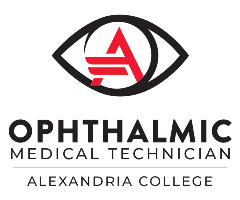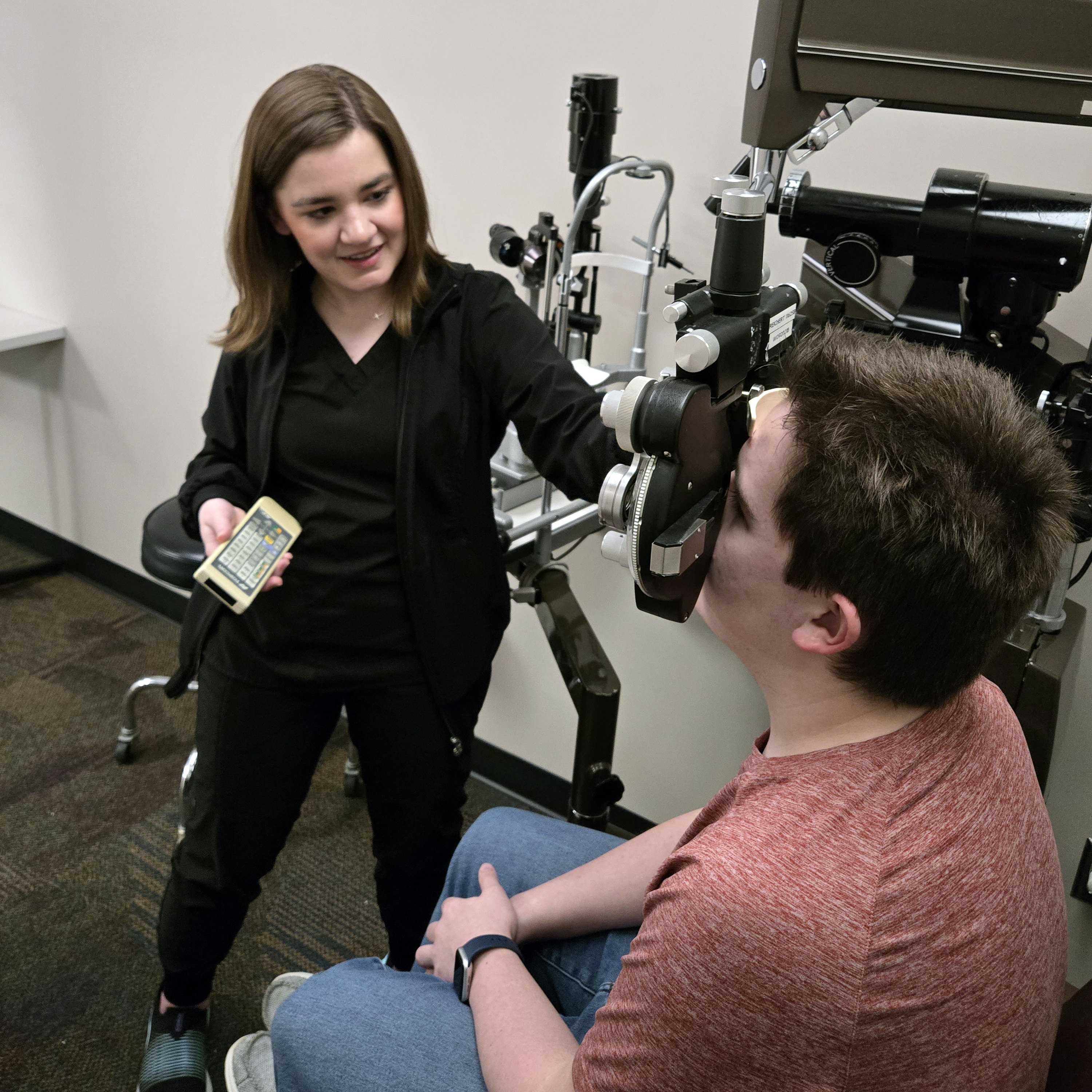Fall Assessment Skills for First- and Second-Year Students
By Kimberly Barblock, COT
Ophthalmic Medical Technician Program Director
These evaluations help ensure students are building the clinical competence and confidence needed to both support ophthalmologists in delivering a high standard of care to their patients and pass the IJCAHPO Certified Ophthalmic Technician (COT) exam upon graduation.
The skills assessed during clinical rotations are strategically aligned with those evaluated in IJCAHPO’s Skill Evaluation, which is the practical portion of the two-part COT certification exam.
Here’s what students can expect during the upcoming fall semester:
First-Year Students (entering their first semester) will be assessed on:
• Chief Complaint - Accurately identifying and documenting the patient’s primary reason for the visit
• History of Present Illness - Gathering relevant details and documenting the patient’s main symptoms
• Visual Acuity - Measuring and recording distance and near vision
• Confrontation Visual Fields - Basic initial screening to assess peripheral vision
Second-Year Students (entering their third semester) will be assessed on:
• Advanced Retinoscopy - Refining skills in the objective measurement of refractive error
• Advanced Refraction - Performing subjective refraction techniques with increased precision
• Humphrey Visual Field Testing - Administering and interpreting automated, static perimetry to assess peripheral vision
While these are the core competencies students will be formally evaluated on, they will also have the opportunity to observe and perform many other ophthalmic procedures during their rotations. This can include tonometry, basic slit lamp examinations, ophthalmic imaging, patient education, and much more.
Clinical experience is a vital part of the OPMT program, and we are proud of the partnerships that make these opportunities possible. Whether students are just beginning or beginning to prepare for COT certification, this semester will bring valuable hands-on growth in the field of ophthalmology.

CLEAR VISION, BRIGHT FUTURES: EDUCATING OPHTHALMIC TECHNICIANS
Recent News:
-
Spring 2026 Lecture Series Kicks Off Tuesday, March 24 with Tips for Living Stress-Free.
February 23, 2026 | 3:43 PM -
SkillsUSA Local Competition Results
February 17, 2026 | 1:29 PM -
Faculty Embrace Equity-Centered Teaching Through Professional Development
February 13, 2026 | 12:49 PM


